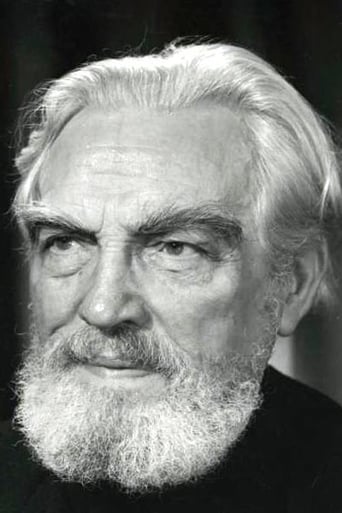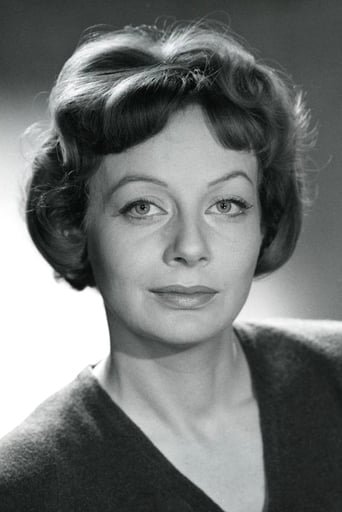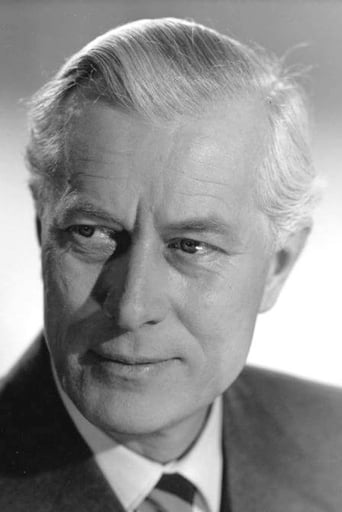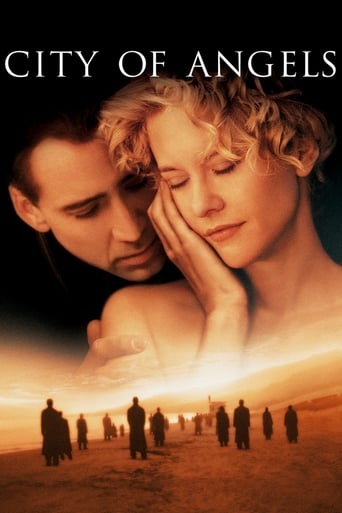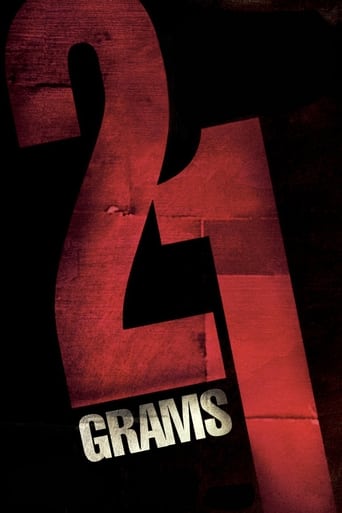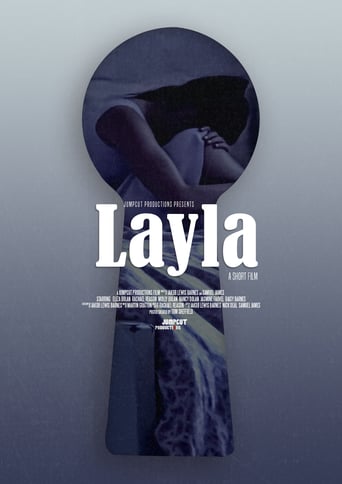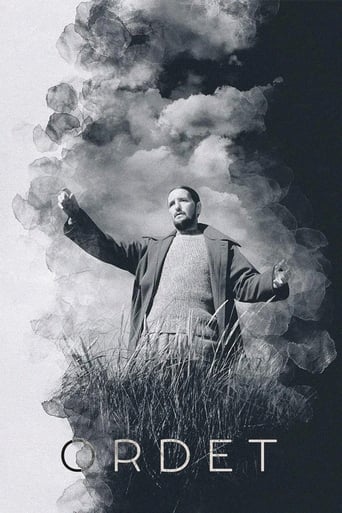
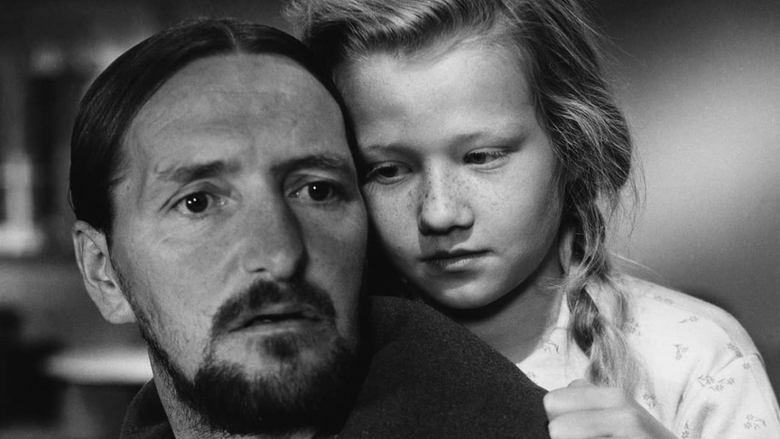
Ordet (1955)
The three sons of devout Danish farmer Morten have widely disparate religious beliefs. Youngest son Anders shares his father's religion, but eldest son Mikkel has lost his faith, while middle child Johannes has become delusional and proclaims that he is Jesus Christ himself. When Mikkel's wife, Inger goes into a difficult childbirth, everyone's beliefs are put to the test.
Watch Trailer
Cast


Similar titles
Reviews
After hearing of this famous film for years, I finally got a chance to see Ordet. Despite the obvious virtues well described by others (Dreyer's great photography with superb lighting and framing, and for the most part excellent acting), I was disappointed by Munk's plot development, especially its denouement - a totally avoidable descent into miracle-mongering mumbo-jumbo.Let me explain why this was avoidable, and suggest that a more satisfactory ending would be possible, even while keeping most of the Ordet story elements intact. Knowing nothing about its trajectory, I at first welcomed the close proximity display of varying religious positions manifested in an early 20th century rural society, where such matters were taken more seriously and dogmatically than is usually the case today. I looked forward to how this diversity would work out, and what point would be made of it. First, you had Patriarch Morten Borgen, who is committed to a less severe form of Protestantism, and second, his son Mikkel, who is determinedly not religious. Third, his son Johannes who had become obsessed with Kierkegaard (a Danish existentialist) that he read while in college, and had returned to the farm thinking he was Jesus, looking down on the others, and given to long boring soliloquies on these matters. Despite Morten's annoyance and his own rigid beliefs, he seems to accept with regret the apparently psychotic Johannes, and is tolerant of the admirable and hard working Mikkel. But he is quite rigid with the third son Anders and his love for Kirstin, a daughter of Peter Petersen, who leads a much more strict Protestant gathering. Petersen also rejects Anders, which leads to some comedy involving Borgen pride. The families almost come to blows over the matter, and Petersen predicts bad tidings for the Borgen farmstead. There are elements of class conflict here; Petersen is an impecunious self-employed tailor with only his skill and tools, while Borgen is a hereditary landowner as well as farmer.When Mikkel's pregnant wife, Inger, has complications with delivery, Johannes' mouth swings into action, first correctly predicting the infant's death and then that of Inger - despite the doctor's opinion that she is beyond danger. This awes the religious Morten almost as much as the deaths sorrow him. But then Johannes inexplicably bolts from the farm and is nowhere to be found. The film audience may be relieved that this gloomy guy seems to be out of the picture. Mikkel tries to be stoic about Inger's apparent death, up until viewing his wife's body in the casket. Meanwhile, Peter Petersen is sorry for his prediction of doom, has a change of heart, shows up at Inger's funeral, gives his daughter's hand to Anders, and reconciles with Morten. Religious dogmatism and division seem to have taken a back seat at last, and though Inger lies still, there is a rare cloud of joy and tolerance in this dark depiction of Denmark.Suddenly, Johannes reappears at the funeral, looking less crazed, but still full of chutzpah. Waving the magic wand of his ideology, he raises Inger. Mikkel is so overjoyed that he forgets his principles and essentially promises to become religious. The others, including an impressionable child, are thrilled. The doctor, also at the funeral, smiles but is noncommittal. What could have gone through the good doctor's mind might have been the seed of a plot alteration that would raise Ordet itself from a dead religious tract to a live message of tolerance and good will.Even in the 1920s, doctors were aware of occasional although rare graveside catalepsy, where the apparently dead arise before burial. It could be that Johannes had come to his senses, showed up due to guilt for the hurt caused by his religious snobbery and dire predictions, and merely wished to apologize for his behavior - with no magic word ("ordet" in Danish) necessary. The recovery from catalepsy could have occurred after this apology, perhaps along with some final words from the good doctor explaining what happened. It wasn't so in the Dreyer movie, but it could have been developed that way. The result would have been more enlightening as well as more entertaining.
Ordet is the second Dreyers film I've seen - the first being The Passion of Joan of Arc which at the time both amazed and scared me with its dark, brooding and sinister camera work and acting. I can only wonder what happened in between this and Ordet (I will soon find out though), but the latter surely makes a few steps backward in terms of almost everything I've seen in the Passion.I'm not a religious person and I can understand that this film may have a great appeal on a Christian (or, as someone else has put it, a quaker). It deals with Christianity, faith, doubt, god and two different ways how to approach it - one represents the "happy Christianity" of Morten, the father and per se the head chief of the Borgen family. The other one is the opposite, a very outdated, medieval way of embracing god through guilt and fear-of-burning-in-hell view of the other family, led by Peter the Tailor. The two views antagonize themselves, causing a conflict. There's something else though - Morten's son Johannes, who thinks is Jesus Christ and ultimately makes the two branches merge together and embrace each other's differences.The plot includes turning points that trigger and motivate some of the internal thoughts and actions of the protagonists. But as the plot progresses, it really does very little or nothing ,in fact, for the viewer, because everything here is really predictable. It makes sense that the movie is based on a play - the actors themselves look like they're in a play. Which would be good, if their acting wasn't so dull. I mean, really - they have the same exspression from start to finish (the film lasts more than 2 hours, mind you), they move from room to room like they are chained animals in a cage, they are empty, conveying the dialog in such a tiresome and dragged manner, that one can only wonder what the hell was Dreyer doing with them in the first place. The material of the dialog is also tiresome - I could just go read the Bible directly if I wanted endless usage of Christian terms all over. And the worse part of it is that it doesn't really lead anywhere - the praised-by-critics finale is anticipated a couple of times before - the resurrection is just the final nail in the coffin in the form of this movie. Its banality and ethereal pathos just shows you how bad the director is trying to get across the "point", that if you believe in god strong enough and you pray every day, then miracles will happen (including dead people raising back to life). Well, if that's the only thing that this movie can convey across, then it's really shallow, outdated and bizarre at most.Some folks can argue that it's allegoric, metaphoric and transcends the general conception of Christian religion, meaning of life and death. Not good enough for me. It has been done so much better and in a lesser self indulgent way in so many other films - somebody here mentions Bergman's Winter Light and I agree completely. The latter is an original, intelligent and non pretentious movie that deals with pretty much the same themes as Ordet, but with a whole new prospective and deep interest in the matter. Ordet is just pale in comparison, on all levels. The other one being Tarkovsky's Andrei Rublev, though its main theme is the artist and the movie is set in the 12th century, it doesn't poke the viewer with endless talk about Christian guilt and morality as Ordet does. Some may also argue that the views expressed in Ordet are just reflections of that time and so it cannot be condemned or viewed as useless or/and outdated. Well, recently I saw Fritz Lang's M, which was made 24 years before Ordet and it didn't even crossed my mind to think it was outdated at any rate. So yeah, Ordet is the "problem", not the time it was made or the topic it deals with.When I see a movie where the lead protagonist talks to a little girl whose mother is on the death bed and says to her that it's better that her mother is in heaven (meaning is earthly dead), because that means she will always watch over her from a distant, undefined "above", than here on Earth with her, I just feel insulted and very, very sorry for the little girl. At times it really seems like the film is trying to sell some sort of medieval Christian brainwash/phantasmagoric fantasy to the viewer and that's something I cannot digest.It's still an art film though - the lighting and filming are still very good, at moments even amazing. But the acting and overall ridicule views expressed within (that drag for two hours), make this film a cheap try at finding the meaning of life, death, god, faith and doubt. May be good or even excellent for some people, but I'm pretty much out of this club.
Family patriarch Morten (Henrik Malberg) lives in rural Denmark with his three sons - faithless father Mikkel (Emil Hass Christensen), the deranged Johannes (Preben Lerdorff Rye) who after going crazy studying theology, now believes himself to be Jesus Christ, and youngest son Anders (Cay Kristiansen). Anders is in love with the daughter of the leader of a strict religious sect, Anne (Gerda Nielsen), and asks both his own father and the father of his love, Peter (Ejner Federspiel), for her hand in marriage, who both refuse. Morten eventually agrees with the help of Mikken, but comes to loggerheads with Peter over their religious beliefs.I don't know much about the work of the great Scandinavian director Carl Theodor Dreyer, as the only other film of his I've seen is the fantastic Gothic 'horror' Vampyr (1932). I do know that his films are notoriously bleak, and is a favourite amongst Lars von Trier and his Dogme troupe. Ordet is no exception to the rule, as Dreyer films his interior scenes with minimal props, and allows the actors and their voices to fill the screen instead. The result is a beautiful and humanistic study of religion and the miraculous.The main crux of the film focuses on the two fathers' views on religion, with Morten's beliefs allowing him to embrace life, while Peter lives a stricter, more sacrificial life. All the while Johannes, their apparently demented son, wanders the dunes and condemns the now faithless world they live in and the fact that they are ignorant to the fact that he is indeed Jesus Christ, and all they need is faith. The family's beliefs are tested when Mikkel's pregnant wife Inger (Birgitte Federspiel) goes into premature labour, and the local doctor fights to save both the her and the baby's life. The film builds towards an inevitable climax, but Dreyer's execution is that of elegance and beauty that allows one of the most moving, uplifting, and satisfying final scenes I've seen in cinema.The film is slow moving, but the subject matter warrants such an attention to detail. There is also an underlying coldness to the film (this is also a Dreyer trait), and all the characters seem emotionally hesitant. Dreyer himself was adopted and experienced a lonely childhood, with his adoptive parents constantly re-enforcing the fact that he was lucky to now have a family and a home. Although these childhood memories clearly influence his work, including Ordet, he also sees hope and promise in humanity, which makes comparisons to the Dogme movement unfair, as there is real human emotion here. A true masterpiece, cementing Dreyer's reputation as one of cinema's most innovative, visionary and intelligent film-makers.www.the-wrath-of-blog.blogspot.com
***I see a couple of idiots don't like the review. Maybe it's because I misspelled Kierkergaard (corrected). Or maybe they just don't like what they can't comprehend.***I love Pauline Kael. As a film critic, she was the greatest. About Ordet, she said:"Some of us may find it difficult to accept the holy-madman protagonist (driven insane by too close study of Kierkegaard!), and even more difficult to accept Dreyer's use of the protagonist's home as a stage for numerous entrances and exits, and altogether impossible to get involved in the factionalist strife between bright, happy Christianity and dark, gloomy Christianity -- represented as they are by people sitting around drinking vast quantities of coffee."Yes, you could read it that way, if you were a cynic. But that begs the question of the film. (Anyway, they weren't drinking that much coffee.)The question for the current audience was the same for the audience of Kaj Munk's time: Are you going to "face reality" -- the reality of the New Order of the Nazis, or in Dreyer's 1955, the reality of materialism -- or are you going to reach beyond yourself, despite all the evidence, embracing even folly? (Erasmus was asking this centuries ago.)The lesson of Dreyer was the lesson of Kierkegaard. Whether your world view is bright or gloomy, stuff happens anyway. What matters is how you confront it, with faith or despair. I think Munk's and Dreyer's challenge still confronts us in the 21st century.As for Dreyer's success in getting the message across, at first I braced myself for a dour lecture. But I was surprised to find uplifting characters and even humor. Like all Dreyer's films, Ordet is mannered and stylized. But think of Eisenstein. Think of Bergman.Speaking of Bergman, I rather compare Ordet to The Virgin Spring. Both confront grief and end with a miracle.


